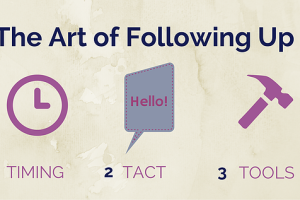That unequivocal buzzword, “business development” (“BD / Biz Dev” for short) is thrown around frequently in start-up circles. Unfortunately, there’s no clear consensus on what the term means or what scope of activities it covers. My favorite interpretation of the phrase is Business Insider’s, Jennifer Fremont-Smith who cleverly defined it as “the process of uncovering the ‘unknown unknowns’ that can help grow a company.”
Depending on the context, the phrase is practically synonymous with such business lingo as “strategic management,” “sales and marketing,” or simply “entrepreneurship.”
But one thing that’s common to nearly all BD paradigms is a special emphasis on constructive business partnerships—mutually advantageous relationships with suppliers, complementary product developers, sometimes even competitors—as a means of growing a company’s visibility, market penetration, and brand image.
Start-ups are prime candidates for these kinds of initiatives. Many successful ventures first took off by means of a high-profile partnership with an established market player. But this is also dangerous territory for small businesses who lack the resources to be equal players in the partnership game.
For those start-up people attempting to navigate this abstract terrain, it might be helpful to hear from others who have traveled it before.
Partnerships are important, but not all-important.
“If you are at a pre-money, pre-product and/or pre-revenue company, your real title is ‘General Business Athlete,’” says Robyn Ward, VP for business development at Glossi.
Especially in the early stages, we should expect to spend the bulk of our time “owning” our industry and its competitive landscape, cultivating strategic relationships, refining our business models, and discovering fruitful streams of revenue.
Even if approached by other companies with partnership opportunities at this stage, one must think long and hard about the core energies of your business and, getting the basics in place first. Without a viable business model and strong forward momentum, a start-up has no hope of being a strategic partner. Rather, such a company risks being wholly assimilated into the other company’s brand.
Customer validation must be the centerpiece of your business model.
Speaker and consultant Brian Tracy describes nine questions a business owner should never stop asking. The first of those questions is, “What business are you really in?” Whatever else we may do, he explains, we’re all ultimately in the business of customer satisfaction, and that means the question that must drive our strategic plans and business development goals is, “What does your customer consider as value?”
At the end of the day, people simply won’t buy something they neither need nor want. Nor will they pay for a product whose price poorly corresponds to their sense of value. We too easily get caught up in our own zeal, sometimes succumbing to a deadly sense of invincibility. Market validation is a check against that tendency. A key partnership may promise large returns and tremendous growth potential, but unless your company has already established itself upon solving a real consumer need, there’s simply no future in that endeavor.
Courting prospective partners can be expensive.
Listen up everyone… we all make mistakes, but one lesson far too many young entrepreneurs learn the hard way is how poor cash flows bring even the most profitable company’s forward momentum to a grinding halt. Without cash on-hand to finance day-to-day operational expenses, there’s simply no way to stay in business for long.
This is something business developers have to think about before earmarking a sizable chunk of their resources for the pursuit of a strategic partnership. “The biggest wins for start-ups are usually deals that give them access to the sales force or marketing reach of a larger player,” explains start-up consultant Nathan Beckord. “Yet large companies move slowly to make decisions. Meanwhile, the start-up is burning cash. … It’s common for start-up founders to get excited by a potential partnership and overlook the distractions that the negotiations are causing.”
It’s imperative that entrepreneurs who decide to court a prospective partner first count the cost—literally—and then maintain fiscal objectivity throughout the proceedings, recognizing and quickly withdrawing from negotiations when they threaten to overwhelm a meager cash supply.
Partnerships must be driven by vision—not ego.
A small start-up with a truly valuable product idea will not have to wait long before offers to “partner” will come rolling in. It can be very gratifying to founders’ egos to entertain these offers—even when they threaten to dilute the company’s original vision. This may occasionally be the wise thing to do. (One of the advantages to being on the start-up side of a negotiation like this, after all, is nimbleness. A start-up has much less invested in a well-established brand image than larger companies do.) But founders owe it to themselves and to their companies to think long and hard about whether the partnership is truly in their long-range best interests.
As business developer Andrew Dumont explains, good BD should have a filtering effect: “The kryptonite for any start-up is a lack of focus. … The majority of people don’t do their research or take the time to really understand the businesses that they’re looking to partner with. … One of your primary roles is knowing how to sniff out the requests that are going to derail you from your mission and spot the ones that can take your business to the next level.”
Good partners negotiate from a position of strength.
Start-ups have a certain stigma, according to Beckord. They begin from a position of disadvantage at the negotiating table because “there is a natural bias against working with firms that are unproven, underfunded, and still developing.”
But it doesn’t have to be that way.
Start-ups with a keen sense of what they do best are the ones who can bargain on even ground with larger companies. Perhaps they serve a niche market better than their competitors do, or maybe they have a proprietary technology that competitors haven’t quite been able to replicate. Because these companies know their strengths, they also have a sense of their peculiar value and can bring something singularly attractive to the table. Rather than settling for a deals that privilege others at the start-up’s expense, founders can instead proactively target and confidently approach prospective partners who have complementary strengths and weaknesses.
Partnerships don’t work unless they’re mutually beneficial.
This is probably the biggest facet of good business development strategy. Courting a prospective business partner is a lot like courting a prospective customer: there has to be something of real value to merit the transaction.
Sean Jacobsohn, Venture Partner at Emergence Capital Partners, writes, “You must forge a symbiotic win-win relationship in order to even attract a partner, let alone have success. Consider both sides of the equation, not just what’s in it for you.”
The start-up organization should be able to plug some conspicuous “gap” in the partner organization’s assets, such that the partner would realize significant, tangible benefits from doing business alongside the start-up. When it comes time to proposition decision-makers, start-up founders do well to make their case from their prospective partner’s vantage, casting an enthralling vision of how the start-up can address real “pain points” in the partner organization.
Relationship-building skills are critical.
Business developers are gifted schmoozers. They/We (let’s just say this all synonymous here, but sometimes I catch myself writing in the 3rd person for some reason) know how to leverage even the most casual acquaintanceship to their strategic advantage, devoting considerable energy to sustaining a diverse network of relationships.
They appreciate how relationships can unlock opportunities and avert disasters. So fundamental is this skill, as a matter of fact, that one life-enrichment blog lists it among twelve universal competencies everyone should learn.
What’s more, with the proliferation of social media and increasingly sophisticated mobile communications technology, the importance of “who you know” will only increase with time. But we need to remember that schmoozing is a skill, something that takes determination and practice. We’re talking about far more than casual hangouts here; we’re building social capital—“making connections, not just contacts,” as Ward puts it.
The opportunist capitalizes on every social occasion, committing names and faces to memory, making meaningful—if brief—connections with potentially influential people. He or she files this information away (sometimes literally), realizing there may come a time when that person’s expertise, affiliations, or friendship may become a key business asset.
There are no unimportant players in the organization.
In terms of access to high-level decision-makers, few have the kind of influence that receptionists, secretaries, and personal assistants command. Seasoned BD professionals go the extra mile to make sure these individuals feel appreciated for their role in helping them do business with their superiors.
As consultant Rich Friedman points out, “they can ‘unlock’ calendars and be a unique advocate for your firm.” It pays to remember that when you do business with a company, you’re engaging their whole organization. The way you’re perceived by the “little guys” on the first floor can have a significant effect on how you’re received by the “big guys” on the top floor.
One thing that all these BD concepts share in common is a long view on overall business goals.
Start-ups who make good partners have already outlined where they are, where they want to go, and whether and how partnering with others will help them get there most efficiently.
They divert their primary efforts to crafting market-validated solutions and scalable product delivery systems, and only then do they expend precious resources courting partners.
When they do, they work strategically, taking a sniper’s approach to securing the right deals, confident they have something valuable to offer, prepared to walk away before negotiations become a drain on their limited resources.
Being able to take this long view of growth objectives is what successful start-up BD is ultimately about.








